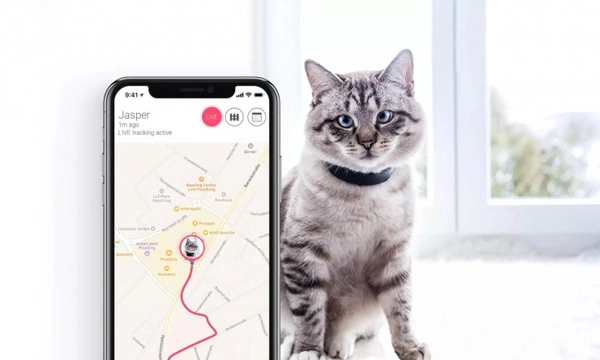
Are gps pet trackers worth the money?
There is a heart-stopping moment when you realise that your dog has escaped through a hole in the fence, or your cat hasn’t come home for 24 hours. Even if they are chipped, there is a distinct possibility they will still be elusive – chipping is essential, but only useful if someone manages to secure your dog and get them to a vet to have the chip read.
So what other precautions can you take to find your lost pet? With the many technological advancements on the market, a pet tracker could be for you, to save you all those missing hours that seem interminable.
So many ‘lost’ pets end up in animal shelters, and if they aren’t chipped, their owners cannot be located. Investing in a GPS tracker could prevent you from being without your pet forever. Worth considering, certainly.
What is the difference between a microchip and a GPS tracker?
With microchipping, if you lose your dog or cat, you will have to rely on it being taken to a shelter or to a vet and wait for them to call you. With a GPS tracker, you can locate where your dog is yourself, and in ‘real time’. Most trackers are sturdily built and waterproof to avoid them falling off – unlike a dog tag. Many trackers cover a long-distance service, and work similarly to any other ‘app’ that you may have on your phone or on your computer. Easy and convenient to use, they can be lifesaving. Many owners may have trailed the streets or park areas for hours trying to locate a pet, and a GPS tracker is certainly time saving and can pinpoint the area your dog is travelling in. Undeniably, it is the fastest way to find your pet, and not have to rely on friends and family to go out hunting in the wrong direction.
Whilst dogs and cats have a great deal of homing instinct, they can become disorientated and lose their way, causing them stress and anxiety, so the quicker you find them, the better it is for both of you in terms of emotional upset. A distressed pet will frequently hide themselves due to fear of the unknown, so with a tracker you can find them so much more quickly.
A GPS tracker should not be a substitute for microchipping – just a bonus of making it easier to find your pet once they go missing. Microchipping for dogs is currently a legal requirement in the UK.
What are the advantages of a GPS tracker?
- No lost time in locating your pet
- Accuracy in their exact location, within a certain parameter (trackers vary in quality, so do your research)
- Can be easily connected to your smartphone or computer
- Ability to spread the word through any of your social media accounts and connect with other like-minded pet owners
- Their construction means they won’t get detached as easily as a tag
- No health dangers – microchips can be dislodged and end up in your pet’s stomach, which can be dangerous and cause sarcomas to form
- The longer your pet is missing, the likelihood of something happening to them increases. A tracker could potentially save your pet’s life.
- If your microchip information is not up to date or if your pet does not have one, vets or shelters will not be able to connect with you. Not all shelters keep pet’s long term, so you run the risk of your pet being put down and the chance of being reunited is lost.
- Most trackers are extremely lightweight, so cause no discomfort for your pet and they won’t be tempted to try to remove it. The average tracker weighs in at between 110g and 120g. It is infinitely lighter than the average collar.
Disadvantages of GPS trackers
Like any other technology advancement, GPS tracking systems can have problems as can any other device you own such as a smartphone or computer. Here are some other flaws that should be noted:
- Cost – this varies considerably between the various systems on the market. Just be aware that you ‘get what you pay for’.
- There is the upfront expense of having it installed, the same as any other satellite service, which will also involve a monthly subscription. If you miss a payment, the service is likely to be cancelled by the operator, so if your pet should go missing during this period, it would all have been a waste of time. Some operators do not charge a monthly fee, but in all honestly, they just aren’t efficient enough to give you peace of mind.
- If you are out in the wilds or camping or simply trekking with your dog in an isolated area, this can be a problem. The location of satellite masts in the open countryside is scarcer than in more populated environments, so locating them in real time could be an issue. Weak phone signals will certainly hamper your ability to find them.
- Locating your pet will only be as good as the life of your battery in smartphones, laptops or iPads. Without adequate power, the GPS tracking system will fail to operate properly. Remember, a dog can cover a lot of ground in a short period of time, so try to keep just that one step ahead.
How do I decide which one to buy?
Research is the key. GPS trackers can range from around £45 up to £500 and cover other factors such as health tracking. Other trackers can cover up to 3 pets at a time, so you simply must decide exactly what you want and then compare brands.
As for the expense, what price do you put on your beloved pet? Surely it must be worth considering all your options for making your pet safe and sound.



